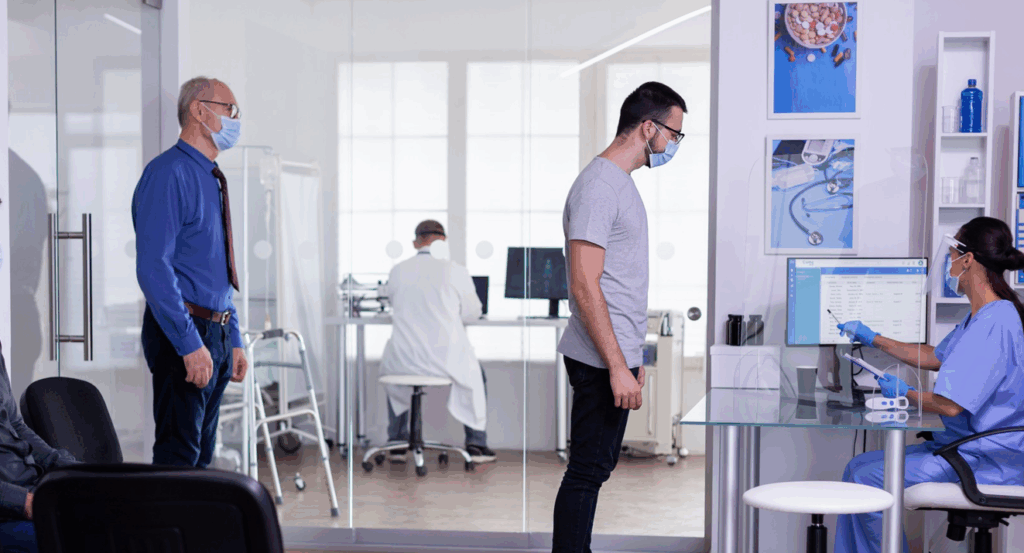By all accounts, the physicians at Sheepmarket Surgery Stamford are negotiating an exceptionally complex environment. While working in a field with strong ties to the neighborhood, they are part of a rapidly changing healthcare system. Both resources and difficulties have been brought about by the collaboration with Lakeside Healthcare, a bigger organization that seeks to standardize and combine regional care. The GPs themselves are at the center of this shift; they are seasoned professionals who deal on a daily basis with overworked systems, growing patient demands, and technology that promises efficiency but occasionally falls short.
The team of general practitioners at Sheepmarket continues to work under tremendous pressure, frequently providing care that is remarkably effective despite structural constraints, even as complaints about lengthy phone lines and digital misfires dominate review platforms. Many patients remember having good experiences with specific doctors, especially those with whom they have developed long-term relationships. The real benefit of continuity in general practice is revealed in these continuing collaborations, where a familiar face offers more than just a diagnosis; they also offer reassurance, contextual care, and historical empathy.
| Doctor | Role | Type | Additional Info |
|---|---|---|---|
| Dr Kathryn Berry | GP Partner | Permanent | Senior partner; involved in surgery leadership and long-term planning |
| Dr Gavin Cattigan | GP Partner | Permanent | Experienced GP with an interest in chronic care coordination |
| Dr Sian Dronfield | GP Partner | Permanent | Actively engaged in patient engagement and digital service integration |
| Dr Jean Moon | GP Partner | Permanent | Known for particularly clear communication with older patients |
| Dr Kate Tizzard | GP Partner | Permanent | Often praised in reviews for empathy and attentiveness |
| Dr Hannah Waddingham | GP Partner | New Partner | Recently appointed; working to rebuild rapport post-merger |
| Dr Romek Wiles | GP Partner | Former Partner | Transitioned out of partnership; praised for hands-on care |
| Dr Mena Khela | GP Partner | New Partner | Supporting system redesign and patient triage improvements |
| Dr Serena Bove | Salaried GP | Permanent | Particularly innovative in mental health cases |
| Dr Mary Chorbadijan | Salaried GP | Permanent | Trusted by families for her thorough and thoughtful care |
| Dr Ritu Dhillan | Salaried GP | Permanent | Engaged in training and mentoring registrars |
| Dr Lizzie Watkins | Salaried GP | Permanent | Recently joined; described as exceptionally attentive and forward-looking |
Reference: Sheepmarket Surgery Team – Official Site
There are layers to the patient’s reaction to the team. A closer examination of comments reveals a significant trend: the doctors themselves are rarely the problem, despite the fact that a vocal portion of the community has expressed grave frustrations regarding the appointment system, digital portals, and delays in prescription processing. Rather, complaints tend to focus on phone systems or reception procedures that feel completely overloaded during busy periods. Many patients say that after they get through, they receive timely, considerate advice, particularly from doctors with a solid reputation like Dr. Moon or Dr. Tizzard.

The quality of clinical care has received less attention in recent months than service access in Stamford’s local Facebook groups and PPG updates. This illustrates a growing national issue: patients expect convenience as practices digitize. However, even the most committed physician cannot make up for a lost first impression when systems malfunction—when online platforms are “unavailable” or automated lines are long and drawn out. It’s comparable to how passengers may accuse pilots of causing a flight delay when the problem actually stems from scheduling or staffing issues outside the cockpit.
However, the doctors keep changing in spite of criticism from the outside. Nowadays, many people divide their time between traditional in-person clinics and online consultations. Some, like Dr. Khela, are actively working to modernize the triage process, directing patients effectively while making sure that patients with complex needs are still seen in person. The team is using data from Doctrin and other platforms to pinpoint service bottlenecks, improve triage techniques, and test out hybrid consultation models that are clinically sound and incredibly effective.
This is comparable to the evolution of the tech sector during the remote work era. GPs at Sheepmarket are learning to manage care with flexibility—balancing phone assessments, video calls, and in-person reviews within a constrained window of hours—much like engineers learned to optimize workflows while working across continents.
For elderly or vulnerable patients, the return to named GP continuity has been one of the most advantageous changes. The practice restores a level of familiarity that algorithms are unable to duplicate by designating a constant point of contact. According to feedback, patients who see the same general practitioner on a regular basis report feeling much more supported, particularly when dealing with mental health issues or chronic conditions.
This type of individualized care was particularly crucial during the pandemic. That human connection was crucial for patients with chronic respiratory conditions and postpartum depression. Many give individual physicians credit for their extraordinary compassion and clarity during otherwise isolating times. It serves as a reminder that medicine is fundamentally a relationship between two individuals rather than a transaction involving a user and a portal.
Practices like Sheepmarket Surgery are caught between community expectations and reform mandates as the NHS landscape continues to change. However, the GPs here continue to be an exceptionally steady force. Their personal commitment to patient care has remained constant, even though the administrative structures surrounding them may still be changing.
Regaining public trust while delivering innovation that genuinely feels supportive is the challenge for the future. Sheepmarket Surgery could move from its “requires improvement” status to a case study in meaningful recovery by incorporating input from Patient Participation Groups, improving booking systems, and boosting employee morale. The physicians are prepared. The infrastructure has to come next.
